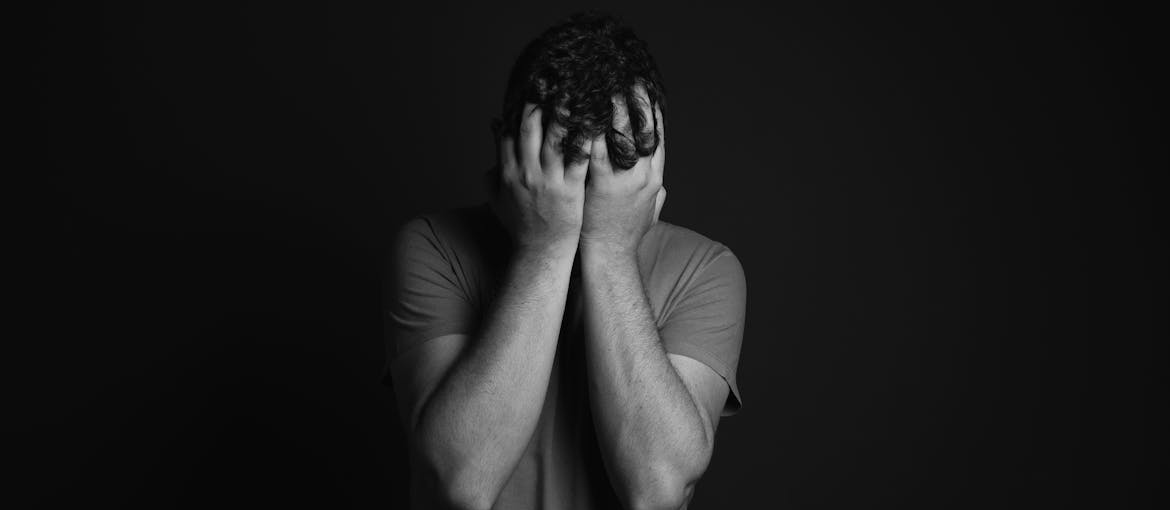About 50% of people with addiction also have a mental health disorder. That’s a scary number because it shows how common dual diagnosis is—and how hard it can be to stay sober. If you’re dealing with both mental health and addiction, you already know recovery is not simple. Dual diagnosis recovery challenges hit harder and can feel endless some days. Things like anxiety, depression, and stress often push people back to old habits. But you don’t have to fight this alone. The right help makes all the difference. Many rehabs in WV now focus on dual diagnosis care, giving you real tools that work. This article breaks down the main problems that derail progress and shows you smart ways to stay on track. Let’s look at what can go wrong—and how you can protect your sobriety.
What Does Dual Diagnosis Mean in Addiction Recovery?
Dual diagnosis means you are facing both a mental health disorder and a substance use disorder at the same time. This is more common than many think, and it makes recovery harder. Treating addiction and mental health together is the best way to heal. If you only treat one part, the other can pull you back into old habits. Dual diagnosis recovery challenges include mood swings, cravings, and mental health setbacks.

Many people struggle with anxiety, depression, PTSD, or ADHD while also battling addiction. If your care plan doesn’t handle both, real progress stalls. You need a program that understands how the two conditions connect. The goal is to give you real tools to manage both every day. With the right care, recovery gets stronger and more stable over time.
Why Dual Diagnosis Recovery Challenges Are Harder to Overcome
When you face dual diagnosis recovery challenges, the path feels longer and harder. You’re not just breaking free from addiction—you’re also handling mental health struggles that can mess with your progress. Things like mood changes, stress, and even sleep problems hit harder in dual diagnosis recovery. Treating both sides is key. For example, what recovery looks like when you have ADHD may involve extra coping tools to handle focus and energy swings. Without a solid plan, setbacks happen fast. Look at what makes recovery harder:
- Two conditions: Both need treatment at the same time.
- Extra triggers: More things set off cravings and stress.
- Medication struggles: Finding the right balance can be tricky.
- Emotional drain: Mental health symptoms make you feel tired.
- Risk of relapse: More chances to fall back into old habits.
Best Strategies for Managing Dual Diagnosis Recovery Challenges
It’s not enough to just get treatment—you need smart strategies to make it work long-term. Overcoming dual diagnosis obstacles takes more than willpower. Let’s focus on two tools that boost your chances: building a support system and using proven therapy approaches for dual diagnosis recovery.
Building Strong Support for Dual Diagnosis Recovery
You can’t do this alone. Having people who care helps you stay grounded, especially when things get rough. A good support system cuts relapse risks with dual diagnosis by keeping you connected and motivated. Family, friends, and recovery peers all play a part. Veterans alcohol rehab programs, for example, bring people together who share life experiences, which can make a big difference.
Your circle should be honest, reliable, and willing to step up when you struggle. Support systems for dual diagnosis patients work best when they mix personal and professional help. Regular check-ins, group meetings, and even text check-ins keep you on track. When things feel too hard, lean on your people. They are part of what keeps you strong.

Using DBT and Other Proven Therapies
Not all therapies work the same for dual diagnosis. Some focus only on addiction, missing the mental health piece. That’s why dialectical behavior therapy for addiction is getting more attention. It teaches skills like distress tolerance, emotional regulation, and better communication. These tools lower relapse risk and help you manage mental health symptoms at the same time.
Why is dual diagnosis harder to treat? Because both parts fuel each other, making it tricky to break the cycle. Therapy approaches for dual diagnosis recovery must be balanced and long-term. DBT is one option, but you should also explore CBT, trauma therapy, and group work. Find what clicks for you and stick with it. Good therapy is key to lasting change.
Emotional Struggles That Derail Sobriety in Dual Diagnosis
Emotions can feel like your worst enemy during recovery. Dual diagnosis recovery challenges often start with emotional overload. Anxiety, sadness, or anger can push you toward relapse fast. This is why care teams focus so much on your mental health. Methadone help in dual diagnosis cases can reduce cravings, but it won’t fix emotional pain alone. You still need strong coping tools to manage feelings that can throw you off. Learning how to spot early warning signs helps a lot. You’re not weak if emotions hit hard. It’s part of the process. Pay close attention to these common struggles:
- Mood swings: Fast changes in feelings that seem extreme.
- Anxiety attacks: Sudden fear or panic that’s hard to calm.
- Deep sadness: Feeling empty, tired, or hopeless.
- Anger outbursts: Quick tempers that create stress.
- Isolation: Pulling away from others without clear reason.

Where to Get Help for Dual Diagnosis Recovery Challenges
Picking the right treatment program feels stressful, but it’s one of the best moves you can make. Dual diagnosis recovery challenges demand the right care team. Let’s break down how to pick a center and what questions matter most when starting treatment.
Finding Trusted Dual Diagnosis Treatment Centers
Start by looking for places that focus fully on dual diagnosis. Regular rehab centers often miss key signs mental illness affects addiction recovery, which weakens your results. You want a place where mental health and addiction get equal attention. Ask for proof that they use evidence-based treatment.
Centers that offer dual diagnosis treatment West Virginia patients trust often post reviews online. Don’t rush this step. Take your time, compare options, and talk to real staff. What are the risks of untreated dual diagnosis? A much higher chance of relapse, worsening mental health, and even overdose. You need a team that can handle both challenges with care and skill.
What to Ask Before Choosing a Dual Diagnosis Program
Questions matter. Before you sign up, ask direct ones. Do they offer medication assisted treatment West Virginia patients rely on? What therapy options are in place? How often will you see a mental health provider? Ask about aftercare, too—good treatment doesn’t stop when you leave. How does mental illness affect addiction recovery in their view?
Their answer tells you a lot about their approach. Clear, honest replies show they know what they’re doing. Don’t skip asking about insurance and payment plans. Programs that care will help you sort out the money side. Taking these steps protects you and gives you the best shot at real recovery.

Common Triggers That Threaten Sobriety in Dual Diagnosis
Triggers make staying sober tough, and dual diagnosis recovery challenges add even more of them. Mental health symptoms can turn small triggers into big setbacks. Things like stress at work, family fights, or bad news hit harder when you’re also managing depression or anxiety. Even a simple change in routine can stir up cravings. You need to know your triggers and plan how to handle them. The goal is to spot problems early and stay ready. Watch for these common triggers that sneak up fast:
- Stress: High-pressure moments at work or home.
- Loneliness: Feeling left out or disconnected.
- Old Friends: Hanging around people who still use.
- Places: Visiting spots tied to past use.
- Boredom: Empty time that leads to cravings.
Treatment Gaps That Worsen Dual Diagnosis Recovery Challenges
Gaps in care can make recovery harder than it should be. Many people face dual diagnosis treatment challenges that block real progress. Without the right tools, staying sober feels impossible. Let’s look at two big problems—lack of support and high costs—and how these issues hurt recovery. If you’ve ever felt stuck, these might explain why dual diagnosis complicates sobriety and what can be done to help.
Lack of Consistent Mental Health Support
Mental health care is often uneven, which makes addiction recovery shaky. Some programs focus more on the addiction side and miss the bigger picture. You might get help for your addiction but feel lost when mental health issues pop up. That’s risky. Signs mental illness affects addiction recovery include mood swings, strong cravings, or sudden isolation.

Without regular mental health check-ins, you stay at risk for relapse. Support systems for dual diagnosis patients must stay active the whole time. If your care feels scattered, it’s a red flag. Dual diagnosis treatment challenges are real, and missing mental health care is a huge one. The right team helps you balance both parts so you don’t feel like you’re fighting two battles alone.
Financial Obstacles in Dual Diagnosis Treatment
Money is one of the biggest reasons people stop treatment too soon. Dual diagnosis care costs more because it treats two problems at once. Many people face relapse risks with dual diagnosis simply because they can’t keep paying. Insurance doesn’t always cover everything, and free programs are hard to find. This leaves people stuck in a dangerous cycle.
Overcoming dual diagnosis obstacles takes time, but quitting early makes it worse. It’s smart to ask your provider upfront about full costs. Don’t wait until you’re deep into treatment to get that info. If money is tight, ask about sliding scales or local aid. Financial help matters because untreated mental health issues in addiction recovery raise your relapse risk fast. Staying in care is worth it.

Relapse Signs in Dual Diagnosis Recovery to Watch For
Relapse often starts before you ever pick up a drink or drug. Spotting the early signs is key to staying on track. Dual diagnosis recovery challenges make relapse trickier because mental health symptoms can hide what’s really happening. For example, feeling tired or down may seem normal but might also be a red flag. Stay sharp and check in with yourself often. If you catch warning signs early, you can act before things slide. Here are signs to keep an eye on:
- Mood changes: Feeling restless, angry, or sad.
- Skipping care: Missing therapy or support meetings.
- Lying: Hiding feelings or actions from others.
- Thinking about using: Daydreaming or planning to use.
- Physical signs: Headaches, sleep trouble, or appetite changes.
What to Do When Dual Diagnosis Recovery Gets Hard
Dual diagnosis recovery challenges can feel overwhelming, but you don’t have to handle them alone. Mental health and addiction create a tough mix, and it’s normal to hit rough spots. The good news is, real help exists. With the right support, you can get past setbacks and keep moving forward. Watch for warning signs early, and don’t be afraid to reach out if things feel shaky. Treatment works best when it covers both your mental health and addiction at the same time. Small steps every day make a big difference over time. Keep your focus on progress, not perfection. Stay connected to people who understand what you’re going through. You have the strength to stay sober, even when things get hard. Recovery is always possible, no matter how many challenges you face.



